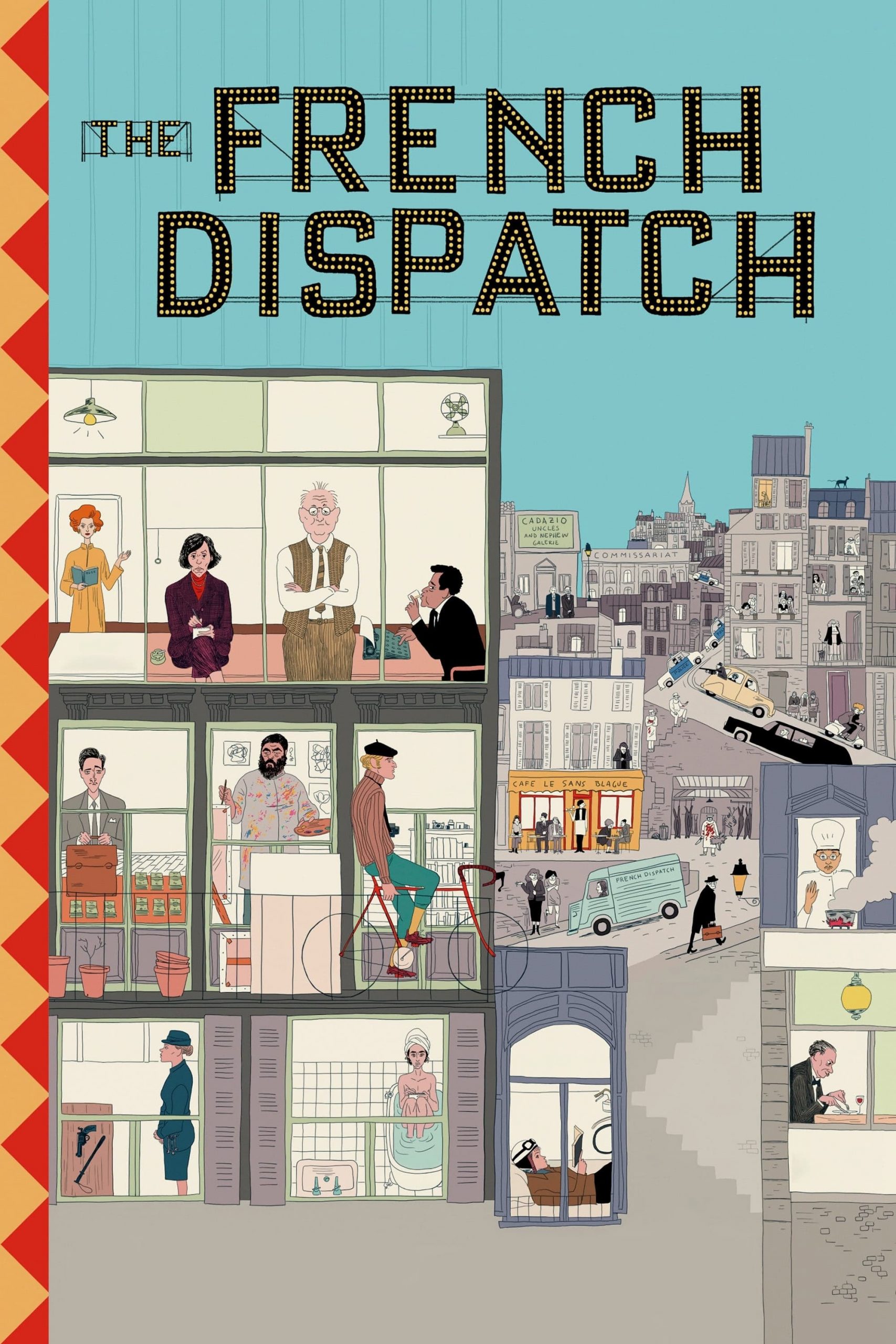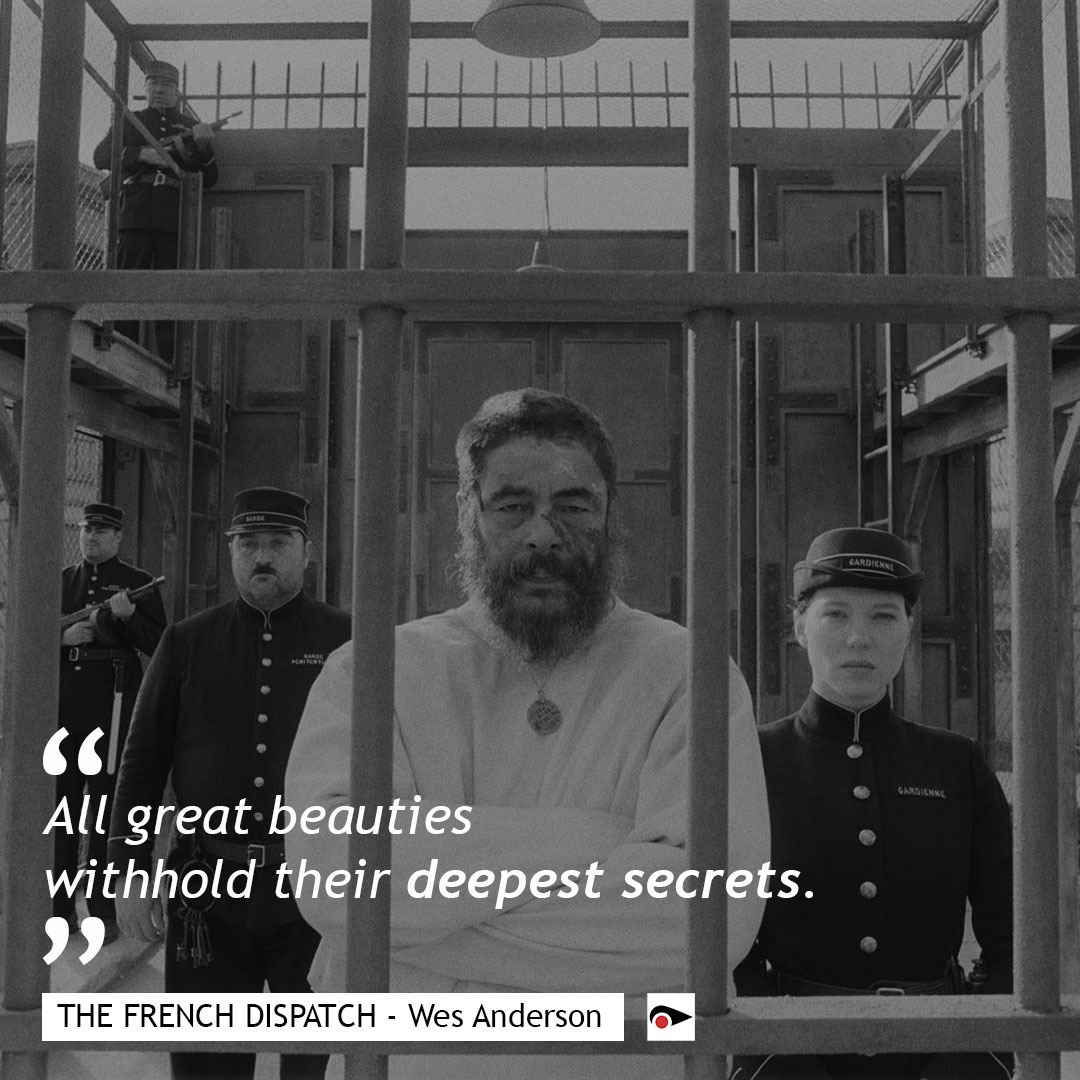
Wes Anderson – The French Dispatch (2021)



- The use of an incredible amount of different formats and mediums (film, digital, animation, text, etc.).
- A choral film with a more unique than rare structure.
- A continuous reference to other cinema and other images in an absolutely joyful, careful and delicate container.
- Wes Anderson gives the impression that he has reached a point in his career where he feels (rightly so) entitled to do whatever comes to his mind.

- Little to nothing.
Do we recommend watching it?
Absolutely!
Few words about the film.
Let’s start by saying that there hasn’t been a narrative structure that completely refrains from addressing a central plot line (the film is somewhat circular – but without the spine that guides the viewer within the narrative) for years in the american mainstream cinema. What is the result? A film that has the characteristics of a magazine, of a reading of sections and smaller parts that inevitably return a whole in their diversity. If others can see a limit in the absence of the “compass” for the viewer, we see it as a strength.
In fact, where Grand Budapest Hotel was based on the discoveries of Gustave H and Zero Moustafa and this linked the parts in a logical way, in The French Dispatch the hidden “character” is Ennui, a place both physical and symbolic. A place that becomes magical, unrealistic and imaginative and yet returns an enveloping gaze on humanity. The film tries to do just that, through the abstraction of the central plot – inviting the viewer to search deeply (albeit in full post-modern bombardment of images), rather than following a line and clinging onto it. Also beautiful is the homage – in France – to Jacques Tati in one of the opening sequences that sees the guy from the bar almost climbing the magazine’s office building.
As usual, the dynamics between the actors are excellent, aided by a sparkling and vital editing and with The French Dispatch, Anderson reaches an almost paradoxical perfection of his language: not only are the images beautiful, but everything works perfectly. and even the most difficult choices on paper (passage from 4:3 black and white to panoramic color to show the blue of Saoirse Ronan’s eyes) are rendered with a simplicity and kindness that blend perfectly with the rest, despite the obvious contrast. This is a dynamic so complex to create, but which is so logical in the viewer’s mind – and therefore does not seem like an imposition of the director – that it makes us understand well the value of the staging and the linguistic maturity now reached by Anderson.
“Should I watch it, then?”
Well, you now know what we think about it but if you are still unsure about it, take a look at the trailer to decide for yourself whether to watch it or not.
Now, nothing left to do here, you just have to go and watch it or if you already did and have something to say about this movie, feel free to leave a comment at the end of the page and say whatever you like about the film. On this site, we are always happy to host others’ opinions on cinema and why not, open a debate if you don’t agree with us on this.
Something else?
To read more of these film “pills”, please visit our dedicated section. Or, if you’re after a more-in-depth look at some films and/or filmmaking techniques more than just a few words, please have a look at our Film Analysis page.